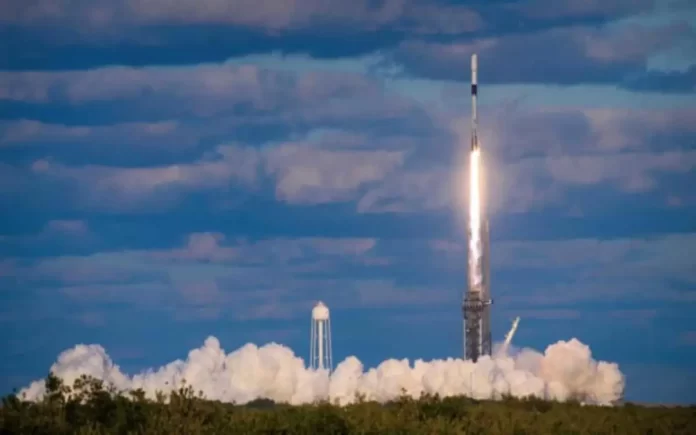Seoul: South Korea’s defense ministry announced on Monday (April 8) that the country’s second indigenous spy satellite had been successfully launched and had entered orbit. The launch, which occurred a day earlier, was facilitated by a SpaceX Falcon 9 rocket from the John F. Kennedy Space Center in Florida, United States.
Successful Deployment of South Korea’s Second Spy Satellite
This recent launch comes after the initial successful deployment of South Korea’s spy satellite into orbit from the Vandenberg Space Force Base, California, back in December.
The timing of this launch is significant, particularly as North Korea recently reiterated its intention to launch multiple reconnaissance satellites this year.
The successful launch took place at 2317 GMT on Sunday, corresponding to Monday morning in Seoul. South Korea’s defense ministry confirmed that the satellite detached from the launch vehicle 45 minutes after liftoff and achieved its designated orbit.
Military officials from South Korea stated that communication with a ground station was established two hours and 40 minutes post-launch.
Equipped with Synthetic Aperture Radar (SAR) technology, the newly launched South Korean satellite boasts the capability to generate images regardless of prevailing weather conditions.
Also Read: India’s GDP Growth to Outpace China’s for Next Few Years, Asserts European Expert
Official Statement
“With the success of the second military spy satellite launch, our military has acquired an additional independent surveillance ability and further bolstered our ‘kill chain’ capability,” emphasized defense ministry spokesperson Jeon Ha Gyu during a press briefing.
South Korea is on course to deploy five spy satellites by 2025 as part of an agreement with Elon Musk’s SpaceX. Notably, in 2022, Seoul joined the ranks of nations capable of launching satellites with indigenous technology, using its own homegrown rocket.
“We will proceed with future satellite launches without a hitch,” affirmed a statement issued by the ministry following the second successful launch.
South Korea’s Strategic Race Amidst North Korean Tensions
The ongoing series of spy satellite launches underscores the escalating tensions between Pyongyang and Seoul, with North Korean leader Kim Jong Un designating South Korea as his country’s “principal enemy”.
Both nations have been intensifying efforts to enhance their military capabilities in space. North Korea claimed to have successfully placed the Malligyong-1 satellite into orbit in November, following two previous failed attempts.
Commenting on North Korea’s satellite endeavors, satellite expert Marco Langbroek from Delft University of Technology in the Netherlands remarked, “We can definitely say the satellite is alive,” as reported by Reuters.
Pyongyang has previously declared its intention to launch three additional spy satellites in 2024.
South Korean defense minister Shin Won-sik indicated that North Korea might launch a second spy satellite as early as mid-April, according to the news agency Yonhap.
Jeon reiterated to reporters that Shin’s remarks were grounded in the military’s monitoring of North Korea’s related activities.



